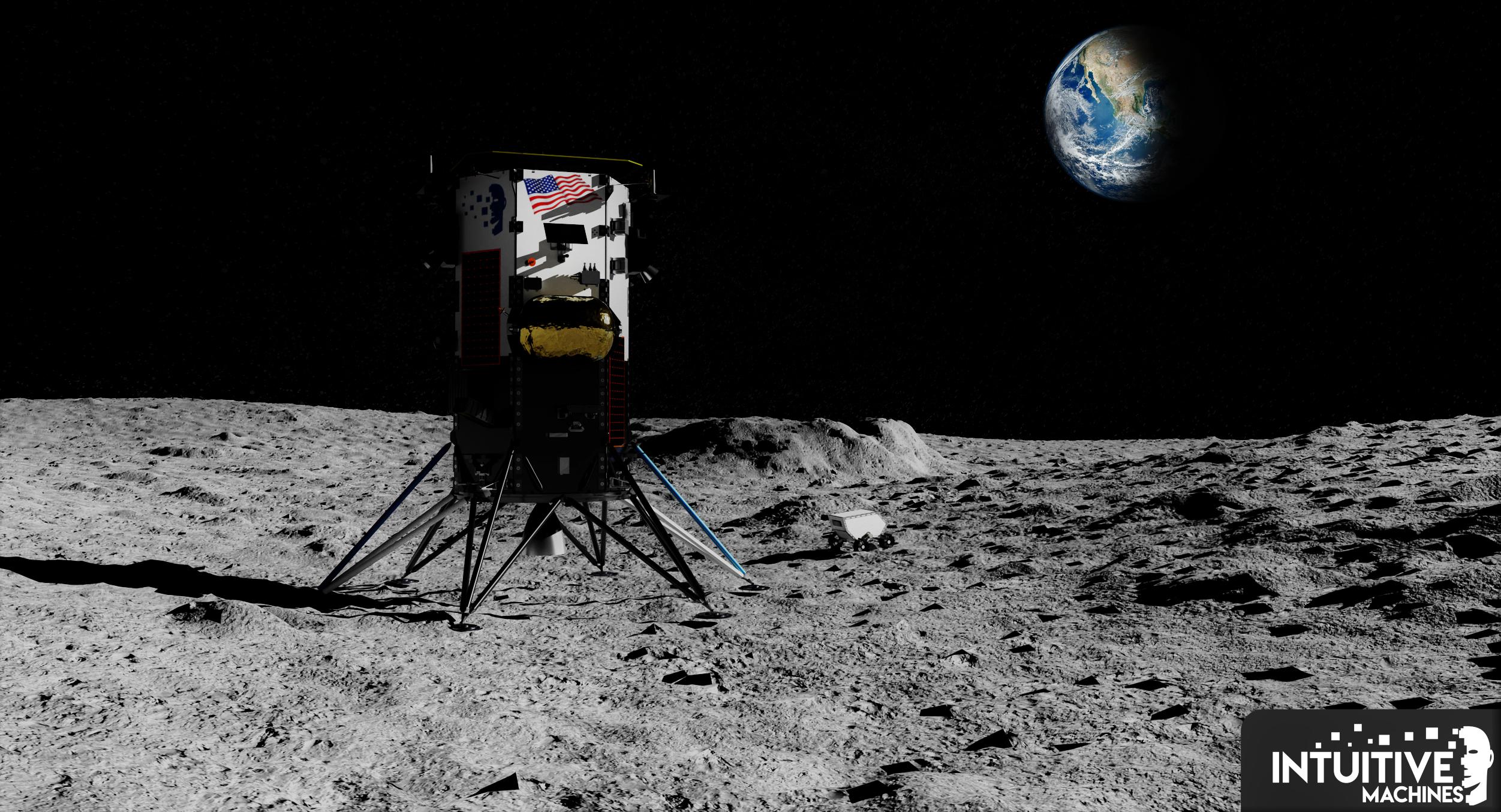
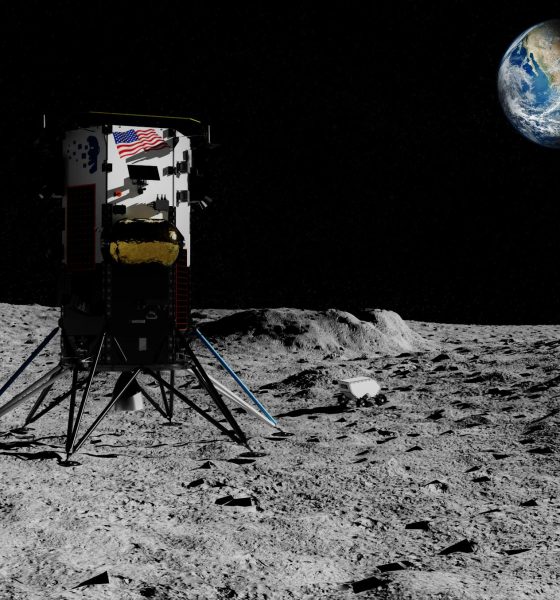
News
SpaceX to launch asteroid mining spacecraft alongside private Moon lander
SpaceX customer Intuitive Machines says it will use spare capacity on one of its Moon lander launches to send startup AstroForge’s first asteroid prospector spacecraft into deep space.
Intuitive Machines’ second Nova-C Moon lander is scheduled to launch no earlier than (NET) Q4 2023 on a SpaceX Falcon 9 rocket. The IM-2 lander is the primary payload but is only expected to weigh about 1.9 tons (~4300 lb). To take advantage of the rocket performance left on the table by the relatively light payload, Intuitive Machines has opted to include a secondary payload adapter ring (ESPA) located below each lander. That gives companies like AstroForge an opportunity to hitch a ride to high Earth orbit, deep space, and the Moon for a likely unbeatable price.
Built by UK startup Orbital Astronautics, AstroForge’s Brokkr-2 spacecraft will attempt to become the first private vehicle to prospect for resources on an asteroid. It’s also the third rideshare payload announced for Intuitive Machines’ IM-2 mission.
We’re excited to launch these missions and many more to come. More information on this year’s launches: https://t.co/MSR61V8Lh7— AstroForge (@ForgeAstro) January 24, 2023
The update that's rolling out to the fleet makes full use of the front and rear steering travel to minimize turning circle. In this case a reduction of 1.6 feet just over the air— Wes (@wmorrill3) April 16, 2024
Lunar Trailblazer
Coincidentally, the main purpose of the second IM-2 rideshare payload to be announced is to search for resources in space. It isn’t concerned with asteroids, but NASA’s 200-kilogram (440 lb) Lunar Trailblazer spacecraft is designed to find, characterize, and map water ice resources on the Moon. That map could help future missions explore the possibility of turning lunar ice into commodities like breathable oxygen or rocket propellant.
The challenges facing such a concept are extreme, but a rocket propellant depot located on the lunar surface could significantly increase the performance of future Moon landers. Propellant depots in cislunar orbit could also help boost spacecraft further and faster to destinations elsewhere in the solar system.
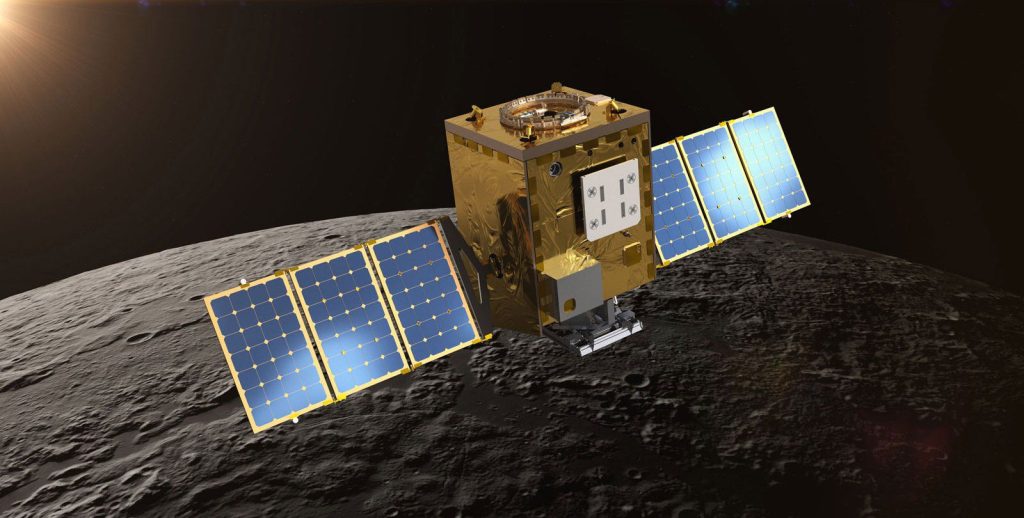
Tanker-002
The first IM-2 rideshare payload to be announced was OrbitFab’s Tanker-002 spacecraft. It’s unclear if OrbitFab is on track to fly Tanker-002 in late 2023, but the spacecraft is meant to be the first geostationary propellant depot ever launched. The Colorado startup has already won a $13.3 million contract from the US military to refuel satellites in geostationary orbit, 36,000 kilometers (~22,250 mi) above Earth’s surface. It’s possible that Tanker-002 is meant to support that refueling mission.
The spacecraft is designed to carry a few hundred pounds of hydrazine monopropellant, potentially enabling it to extend the useful lives of multiple multimillion-dollar satellites by several years. Alongside IM-2, Falcon 9 will launch Tanker-002 on a lunar flyby trajectory. But thanks to the cooperation of startup GeoJump, instead of entering orbit around the Moon, Tanker-002 will slingshot around the Moon to slow itself down. That lunar slingshot will allow the depot to efficiently enter geostationary orbit, where it can begin refueling spacecraft.
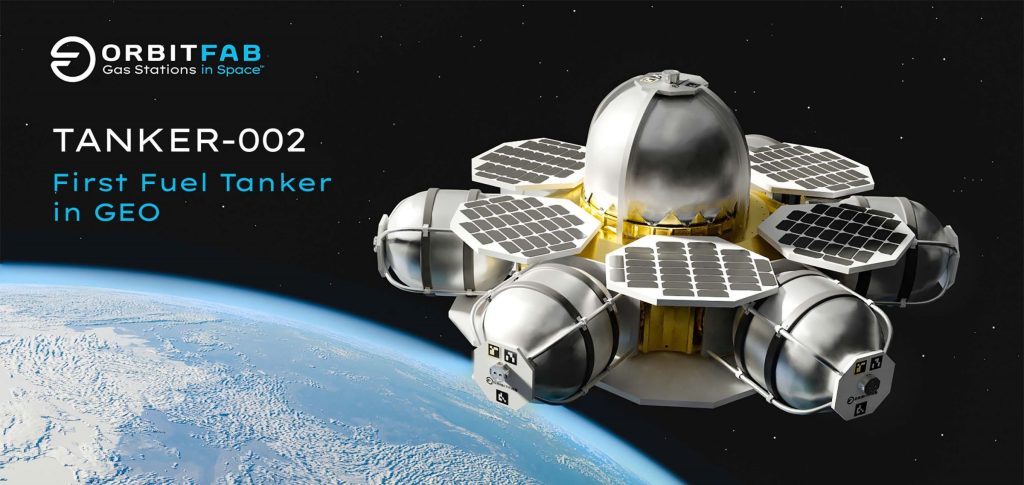
Brokkr-2
Brokkr-2 is the second of two AstroForge spacecraft scheduled to launch in 2023. The first, Brokkr-1, will head to low Earth orbit (LEO) as early as April 2023 on SpaceX’s seventh Falcon 9 rideshare launch. Once in orbit, it will attempt to demonstrate technology AstroForge has developed to refine platinum ore in microgravity conditions. Brokkr-2 will then visit an asteroid and search for platinum resources. If enough platinum is discovered, Bloomberg reports that AstroForge will send a third mission to demonstrate the ability to land on the asteroid. As early as 2025, AstroForge’s fourth mission would be the first to attempt to land, gather ore, turn that ore into platinum, and return the precious metal to Earth.
AstroForge has raised $13 million to date. Unlike failed asteroid mining startups Deep Space Industries and Planetary Resources, the new company intends to exploit increasingly capable off-the-shelf hardware and services to keep its costs as low as possible. In theory, that will allow it to focus most of its resources on developing the unproven technology required to gather and refine space-based resources.
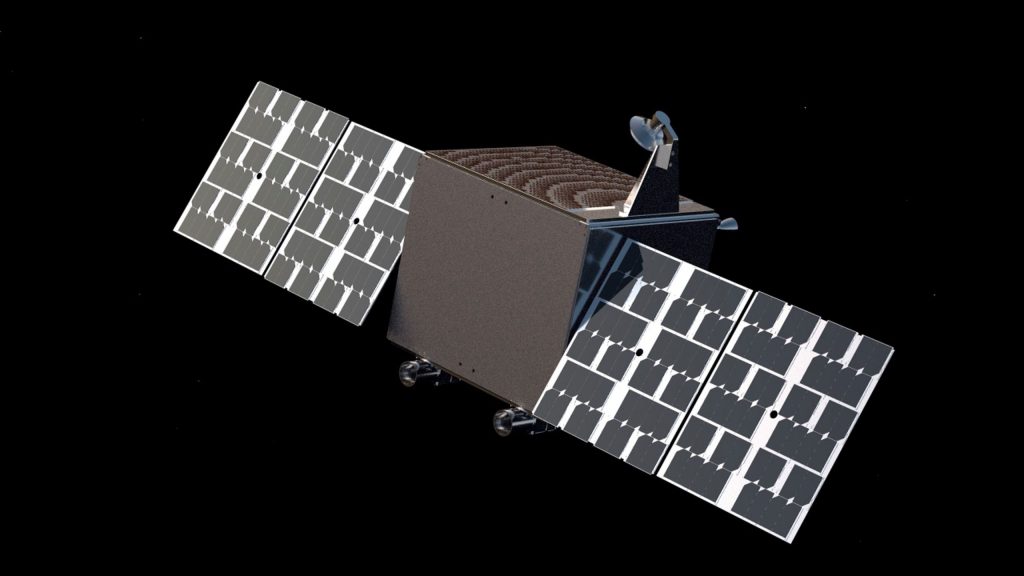
IM-2
Finally, the IM-2 Nova-C Moon lander’s primary payload is a pair of NASA instruments designed to drill into the lunar surface and analyze the regolith for volatiles. Also known as PRIME-1, the mission will be NASA’s first serious exploration of in-situ resource utilization (ISRU) on the Moon.
The mission is a sort of microcosm of the future of space utilization, which may focus heavily on ISRU and refueling to extend the capabilities of chemically-powered rockets and spacecraft. Lunar Trailblazer will map lunar water resources. Brokkr-2 will attempt to prospect an asteroid for extractable metal. IM-2 will test technologies that could help extract resources from the Moon. And Tanker-002 will be a significant step forward for commercial propellant depots, which could eventually create markets for space resources.

News
Tesla ships out update that brings massive change to two big features
“This change only updates the name of certain features and text in your vehicle,” the company wrote in Release Notes for the update, “and does not change the way your features behave.”

Tesla has shipped out an update for its vehicles that was caused specifically by a California lawsuit that threatened the company’s ability to sell cars because of how it named its driver assistance suite.
Tesla shipped out Software Update 2026.2.9 starting last week; we received it already, and it only brings a few minor changes, mostly related to how things are referenced.
“This change only updates the name of certain features and text in your vehicle,” the company wrote in Release Notes for the update, “and does not change the way your features behave.”
The following changes came to Tesla vehicles in the update:
- Navigate on Autopilot has now been renamed to Navigate on Autosteer
- FSD Computer has been renamed to AI Computer
Tesla faced a 30-day sales suspension in California after the state’s Department of Motor Vehicles stated the company had to come into compliance regarding the marketing of its automated driving features.
The agency confirmed on February 18 that it had taken a “corrective action” to resolve the issue. That corrective action was renaming certain parts of its ADAS.
Tesla discontinued its standalone Autopilot offering in January and ramped up the marketing of Full Self-Driving Supervised. Tesla had said on X that the issue with naming “was a ‘consumer protection’ order about the use of the term ‘Autopilot’ in a case where not one single customer came forward to say there’s a problem.”
This was a “consumer protection” order about the use of the term “Autopilot” in a case where not one single customer came forward to say there’s a problem.
Sales in California will continue uninterrupted.
— Tesla North America (@tesla_na) December 17, 2025
It is now compliant with the wishes of the California DMV, and we’re all dealing with it now.
This was the first primary dispute over the terminology of Full Self-Driving, but it has undergone some scrutiny at the federal level, as some government officials have claimed the suite has “deceptive” names. Previous Transportation Secretary Pete Buttigieg was one of those federal-level employees who had an issue with the names “Autopilot” and “Full Self-Driving.”
Tesla sued the California DMV over the ruling last week.
News
Tesla workers push back against Giga Berlin unionization
“IG Metall did not succeed in Giga Berlin‘s works council election earlier today. The union share was reduced from nearly 40% in 2024 to 31% in 2026! This is a clear message by the Giga Berlin team towards an independent co-determination! The list called Giga United, led by the current chairwoman, Michaela Schmitz, received the most votes with more than 40%! Good news for Giga Berlin!”

Tesla workers pushed back against unionization efforts at Gigafactory Berlin, and over the past few years, there has been a dramatic decrease in interest to unionize at the German plant.
Gigafactory Berlin Plant Manager André Thierig announced on Wednesday that IG Metall, the European union group, saw its share reduce from 40 to 31 percent in 2026 as employees eligible to vote on the issue. Instead, the Giga Berlin team, known as Giga United, received the most votes with more than 40 percent.
BREAKING! 🚨
IG Metall did not succeed in Giga Berlin‘s works council election earlier today. The union share was reduced from nearly 40% in 2024 to 31% in 2026!
This is a clear message by theGiga Berlin team towards an independent co-determination!
The list called Giga…
— André Thierig (@AndrThie) March 4, 2026
Thierig gave specific details in a post on X:
“IG Metall did not succeed in Giga Berlin‘s works council election earlier today. The union share was reduced from nearly 40% in 2024 to 31% in 2026! This is a clear message by the Giga Berlin team towards an independent co-determination! The list called Giga United, led by the current chairwoman, Michaela Schmitz, received the most votes with more than 40%! Good news for Giga Berlin!”
There were over 10,700 total employees who were eligible to vote, with 87 percent of them turning out to cast what they wanted. There were three key outcomes: Giga United, IG Metall, and other notable groups, with the most popular being the Polish Initiative.
The 37-seat council remains dominated by non-unionized representatives, preserving Giga Berlin as Germany’s only major auto plant without a collective bargaining agreement.
Thierig and Tesla framed the outcome as employee support for an “independent, flexible, and unbureaucratic” future, enabling acceleration on projects like potential expansions or new models. IG Metall expressed disappointment, accusing management of intimidation tactics and an “unfair” campaign.
The first election of this nature happened back in 2022. In 2024, IG Metall emerged as the largest single faction with 39.4 percent, but non-union lists coalesced for a majority.
But this year was different. There was some extra tension at Giga Berlin this year, as just two weeks ago, an IG Metall rep was accused by Tesla of secretly recording a council meeting. The group countersued for defamation.
Tesla Giga Berlin plant manager faces defamation probe after IG Metall union complaint
This result from the 2026 vote reinforced Tesla’s model of direct employee-management alignment over traditional German union structures, amid ongoing debates about working conditions. IG Metall views it as a setback but continues advocacy. Tesla sees it as validation of its approach in a competitive EV market.
This outcome may influence future labor dynamics at Giga Berlin, including any revival of expansion plans or product lines, which Musk has talked about recently.
News
SpaceX President Gwynne Shotwell details xAI power pledge at White House event
The commitment was announced during an event with United States President Donald Trump.

SpaceX President Gwynne Shotwell stated that xAI will develop 1.2 gigawatts of power at its Memphis-area AI supercomputer site as part of the White House’s new “Ratepayer Protection Pledge.”
The commitment was announced during an event with United States President Donald Trump.
During the White House event, Shotwell stated that xAI’s AI data center near Memphis would include a major energy installation designed to support the facility’s power needs.
“As you know, xAI builds huge supercomputers and data centers and we build them fast. Currently, we’re building one on the Tennessee-Mississippi state line. As part of today’s commitment, we will take extensive additional steps to continue to reduce the costs of electricity for our neighbors…
“xAI will therefore commit to develop 1.2 GW of power as our supercomputer’s primary power source. That will be for every additional data center as well. We will expand what is already the largest global Megapack power installation in the world,” Shotwell said.
She added that the system would provide significant backup power capacity.
“The installation will provide enough backup power to power the city of Memphis, and more than sufficient energy to power the town of Southaven, Mississippi where the data center resides. We will build new substations and invest in electrical infrastructure to provide stability to the area’s grid.”
Shotwell also noted that xAI will be supporting the area’s water supply as well.
“We haven’t talked about it yet, but this is actually quite important. We will build state-of-the-art water recycling plants that will protect approximately 4.7 billion gallons of water from the Memphis aquifer each year. And we will employ thousands of American workers from around the city of Memphis on both sides of the TN-MS border,” she noted.
The Ratepayer Protection Pledge was introduced as part of the federal government’s effort to address concerns about rising electricity costs tied to large AI data centers, as noted in an Insider report. Under the agreement, companies developing major AI infrastructure projects committed to covering their own power generation needs and avoiding additional costs for local ratepayers.








